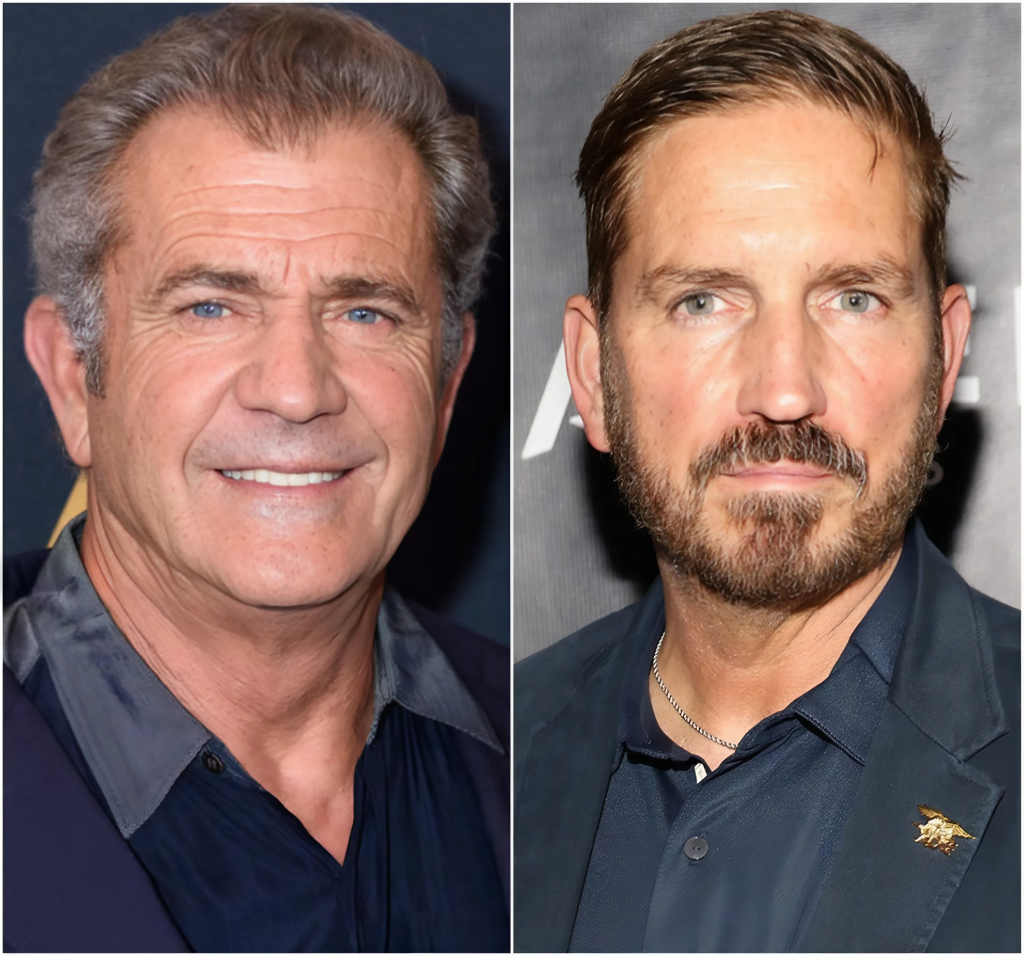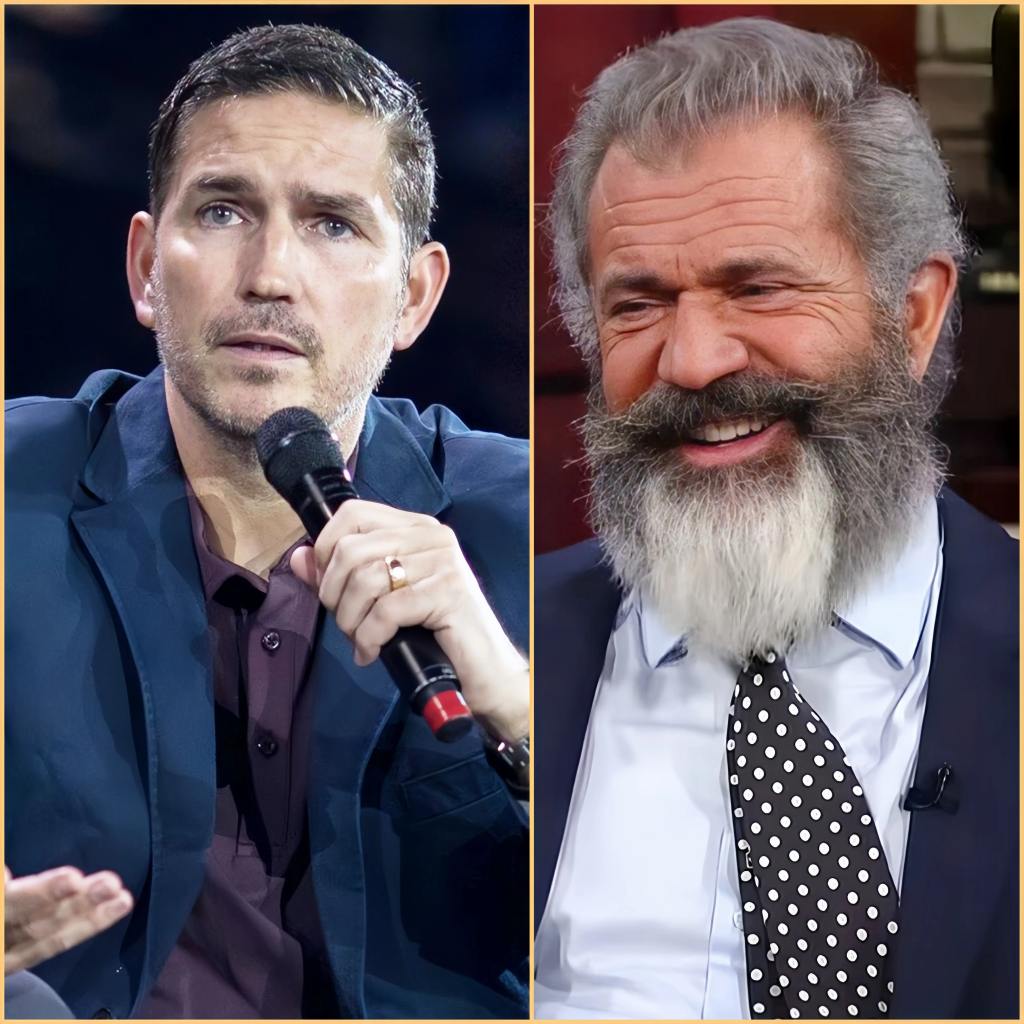In a move that has captured widespread attention across both the entertainment industry and the wider public, Hollywood stars Jim Caviezel and Mel Gibson recently made headlines by turning down a $500 million film project offered by Netflix. This bold rejection has sparked intense debate, with many questioning the motives behind their decision. Both Caviezel and Gibson, known for their outspoken opinions and controversial roles in the past, explained that their refusal to participate in the lucrative deal was due to their strong disapproval of Netflix’s increasing focus on promoting “social consciousness” and its open support for politically sensitive causes such as LGBTQ+ rights and Pride Month. Their decision has ignited a renewed conversation about the complex intersection of entertainment, political agendas, and artistic integrity in today’s Hollywood.

At first glance, the rejection of a multi-million dollar project might seem surprising, especially considering the financial rewards involved. However, for Caviezel and Gibson, this decision is rooted in a long history of speaking out against what they perceive as a growing cultural shift in the entertainment industry toward political correctness and progressive ideologies. Both actors have consistently used their platforms to voice their personal beliefs, often addressing issues such as faith, freedom, and what they believe is the moral decline of Hollywood.
Jim Caviezel, best known for his iconic portrayal of Jesus Christ in The Passion of the Christ, has frequently expressed frustration with what he views as the entertainment industry’s increasing embrace of progressive ideologies, particularly surrounding LGBTQ+ rights and “social consciousness” culture. In various interviews, Caviezel has voiced concerns that the modern entertainment landscape is becoming overly politicized, which he believes has led to the sidelining of traditional values in storytelling. His devout Christian faith and commitment to his beliefs have often put him at odds with the growing influence of progressive politics within Hollywood. By turning down the Netflix project, Caviezel is sending a clear message that he will not compromise his values for the sake of financial gain or fame.

Similarly, Mel Gibson, who has long been a controversial figure in Hollywood due to past controversies and outspoken views, has also criticized what he perceives as an overemphasis on “public consciousness” and “political correctness” in the industry. Known for directing blockbusters such as Braveheart and The Passion of the Christ, Gibson has been a polarizing figure for years, consistently voicing his opposition to what he sees as the dominance of liberal agendas in Hollywood. His decision to turn down the Netflix deal echoes Caviezel’s concerns, as Gibson believes that the entertainment industry has strayed too far from its roots, particularly in supporting social justice movements related to LGBTQ+ rights and Pride.

The duo’s rejection of such a massive film project has sparked significant backlash, particularly due to the enormous financial sum at stake. A $500 million deal would have been one of the largest film projects in Netflix’s history, making their refusal even more remarkable. Their decision is not just about the content of the proposed project itself, but also reflects their growing concern about what they view as Netflix’s role in pushing a political agenda through its programming choices. Both Caviezel and Gibson seem to be taking a stand against what they perceive as an industry-wide shift toward promoting socially conscious causes at the expense of storytelling that reflects their values and beliefs.
Netflix, once hailed for its commitment to offering diverse content and groundbreaking programming, has increasingly aligned itself with progressive causes over the past several years. From its outspoken support of LGBTQ+ rights to its promotion of Pride Month and other social justice initiatives, the streaming giant has made its political leanings clear. Many in the entertainment industry view Netflix as a leader in promoting cultural change, championing diversity, equity, and inclusion across its programming and corporate policies. However, this approach has drawn criticism from figures like Caviezel and Gibson, who argue that these initiatives often come at the cost of ignoring more traditional or conservative narratives that may not align with the latest political trends.

Caviezel, in particular, has been vocal about how this cultural shift has impacted the types of roles available to actors who do not conform to the dominant “woke” agenda. He has suggested that the pressure to adhere to politically correct narratives is stifling creative freedom, with certain projects being canceled or altered to fit a more socially acceptable storyline. In turning down the Netflix deal, both Caviezel and Gibson are essentially signaling that they will not compromise their artistic vision and personal integrity simply for the sake of commercial success or popular approval.
The timing of this public rejection also plays into the broader discussion about the state of Hollywood and its relationship with social issues. With Pride celebrations becoming increasingly visible and the entertainment industry placing greater emphasis on inclusivity, some critics argue that the very essence of storytelling is being compromised to promote ideological causes. For Caviezel and Gibson, this is a critical concern. They believe that entertainment should be primarily an artistic expression rather than a vehicle for promoting political or social causes. Their rejection of the Netflix project underscores their belief that the entertainment industry should focus more on creative freedom and less on serving as a platform for political agendas.
Their decision is a stark reminder of the ongoing tension between creativity and commerce in today’s entertainment landscape. For many actors and filmmakers, the desire to tell meaningful, impactful stories often collides with the realities of corporate interests and the expectations of a global audience that increasingly demands content be politically correct and inclusive. By rejecting the Netflix deal, Caviezel and Gibson are making a powerful statement that they prioritize personal integrity and artistic authenticity over financial gain — a position that many within Hollywood may find difficult to accept or understand.
In the end, their decision to turn down the $500 million project is not only a protest against Netflix’s political leanings but also reflects a broader cultural divide within the entertainment industry. As streaming platforms like Netflix continue to champion progressive causes and push for more inclusivity in their content, the question remains whether traditional actors and filmmakers like Caviezel and Gibson will continue to find a place in an increasingly “woke” Hollywood. Their rejection of the Netflix project highlights the ongoing clash between artistic expression, ideological agendas, and the commercial pressures facing the modern entertainment industry.
As the industry continues to evolve, it will be interesting to see whether Caviezel and Gibson’s stand is an isolated incident or the beginning of a larger movement that challenges Hollywood’s shift towards political correctness. One thing is certain: their refusal to participate in a $500 million project has made a powerful statement that will resonate within Hollywood for years to come.


